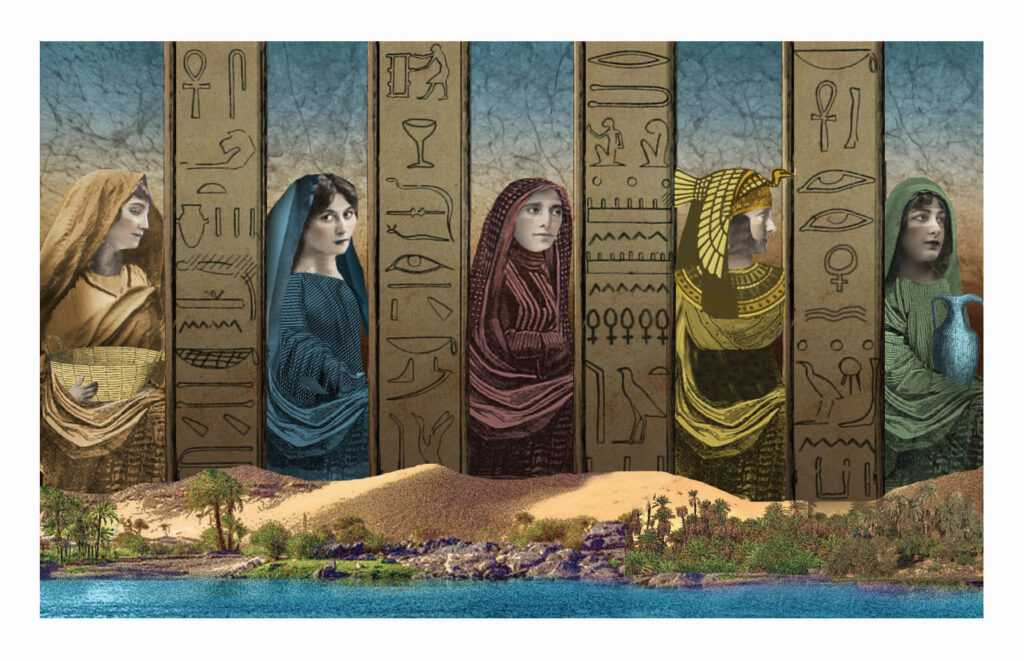Holidays
Passover
Rebellious Acts in the Passover Story Can Inspire Us Today

This year, cute little finger puppets, each representing one of the 10 plagues, will not appear on my Passover table for the grandchildren to play with. Nor will the green plastic jumping frogs a guest once gave us hop around, making everybody laugh. Having learned these many months what it means to live through a plague, I will never again make light of the ancient Egyptians experiencing not just one, but 10 plagues. To be sure, the pandemic that torments us came as a force of nature, unlike the biblical punishments meted out to the Egyptians. Nevertheless, we can empathize with those punishments and respect the anguish of the people afflicted by them.
We can also ask why. While health experts today seek scientific causes for the coronavirus that plagues us, Bible scholars over the centuries have searched for moral lessons behind the mythic suffering of the Egyptians. Why, according to tradition, was every Egyptian, including the lowliest maidservant, stricken with the plagues? It was Pharaoh who enslaved the Israelites; why did everybody have to pay for his deeds?
The answer most commentators give is that all the Egyptian people participated in Pharaoh’s evil because no one spoke out against it. The Egyptian taskmasters made work ever harder for the Israelites, and those maidservants gloated over the suffering of folks lower down on the economic or social ladder. Even individuals who had little to do with the Israelites kept quiet. Like ordinary Germans during the Holocaust, they simply “followed orders” and looked the other way.
As a moral document as well as a history of the Jewish people, the Bible counters the behavior of the mostly silent Egyptians by presenting a stark contrast to it: five courageous women in the Book of Exodus, each of whom follows her conscience and by doing so helps set the Israelites on a path to freedom.
Two midwives, Shifra and Puah, disobey Pharaoh’s orders to kill every Israelite boy born, arguing that the Hebrew women give birth too quickly to intervene. Yocheved, mother of Moses, puts her life on the line by hiding her baby boy for three months, then places the child in a basket on a riverbank, with her daughter Miriam—Moses’s sister—watching over him. Miriam bravely informs the Egyptian princess who finds the basket about a wet nurse—secretly Yocheved—to suckle the boy, although as a slave girl Miriam might be punished for blatantly approaching Egyptian royalty. And that princess, Pharaoh’s daughter, whom the rabbis called Batya, meaning “daughter of God,” rears Moses as her son in bold defiance of her father.
Five women place themselves in opposition to the entire population of Egypt. The midwives fearlessly rebuff a king. Yocheved and Miriam risk everything to save the baby who will one day save the Hebrew nation. And Pharaoh’s daughter ignores her filial ties to act with humanity. Significantly, the Bible chooses women, traditionally the least powerful members of society, to convey a message: True power comes from standing up for what you believe is right and ethical, no matter the obstacles.
How do such powerful actions translate to today? If you’re concerned, for example, about growing challenges to a woman’s right to choose, start a petition, contact a legislator, join a rights group. Distressed about the upsurge in antisemitism in this country? Brainstorm with others about combatting it or write an opinion piece for a local newspaper. At times we may have to move beyond our comfort zone to act on our beliefs, but not acting cannot be an option.
Having experienced our own plague this past year, I have new sympathy for the biblical Egyptians, although I don’t condone their behavior. Above all, however, I am inspired by the daring women, because of whom, the rabbis said, “Israel was redeemed from Egypt.”
Francine Klagsbrun is the author most recently of Lioness: Golda Meir and the Nation of Israel. She is currently writing a biography of Henrietta Szold.










 Facebook
Facebook Instagram
Instagram Twitter
Twitter
Leave a Reply